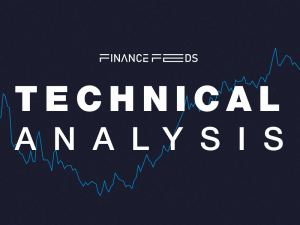It’s referendum day! What will happen to the FX industry if UK remains and Turkey joins the EU?
The full facts and figures that industry executives and traders should bear in mind if Britain remains an EU member state, and if Turkey joins the union.

Having the fate of a global industry’s future decided by a widespread electorate, many of whom are not related to the electronic trading or interbank FX business at all is a potentially interesting lead up to a very uncertain possible outcome.
Today, Britain’s voting population heads to the polling station to cast its votes with 82% of the electorate having decided which way to vote and a current opinion poll by ComRes showing that the difference between the number of people who want Britain to leave the European Union and those who wish it to remain a member state is marginal.
Currently, among the adult population of the United Kingdom, 42% are said to be backing a vote to leave the European Union as opposed to 48% who wish to back a vote to remain a member state, with 11% undecided.
With the potential outcome currently looking likely to swing toward a vote for Britain to remain a member state of the European Union, it is perhaps of interest to take a look at what may happen within the FX industry in Europe should the world’s largest center for institutional and interbank FX remain a member state.
Turkey – an isolated FX region which may open up to Europe
A perhaps controversial potential geopolitical event that may ensue is if Britain remains a member state, and if Turkey joins the European Union very shortly afterwards, which is beginning to appear a distinct possibility.
Discussions are set to re-open next week with regard to potentially allowing Turkey to become a fully included member state of the European Union, with former British Prime Minister John Major, who was campaigning alongside encumbant Prime Minister David Cameron yesterday, also appearing to suggest that Turkey could join the EU far more quickly than had been originally anticipated, saying: “They are not going to get in in my judgment for one, two decades – perhaps not ever.”
Iain Duncan Smith, a Leave campaigner and another former Conservative Party leader, said Sir John had let the cat out of the bag. Mr. Duncan-Smith publicly stated today “As much as the Prime Minister suggests otherwise, the issue of Turkey and the future of its 77million population ought to be in voters’ minds today as they enter the polling booth.”
There are two very important aspects to consider here with regard to the way that the current structure of the FX industry could potentially change, that being from an industry perspective, and from a consumer (trader) perspective.
From an industry perspective, the inclusion of Turkey within the European Union could put an end to the country’s currently domestic market-only FX industry, which is quite large.
Six years ago, the Turkish government, weary from what had become a barrage of serious complaints about unlicenced retail warehouse brokerages and binary options shops operating from within the country which were apparently conning international customers, implemented a series of very unusual and strict regulations with regard to how FX brokerages should be operated in Turkey.
These rules isolated Turkish firms from the world and ensured that they could only conduct business within Turkey itself, garner only domestic client bases, and even more remarkably, must own their own technology provider in order that the Turkish regulatory authorities could enforce regulatory rulings over the entire business of all brokerages in Turkey, including the checking of the systems that they are using.
As a result of this, some very large and well organized brokerages appeared in Turkey, and the companies that had already been operating pre-regulatory reform began to develop their infrastructure to meet these rules.
How big is the industry in Turkey?
The answer is – very big indeed.
Twenty two brokerages have the largest market share in Turkey, some of which are domestic firms and some are Turkish subsidiaries of international firms, those having had to be created in order to operate in Turkey, as onboarding customers from Turkey to firms overseas is illegal under Turkish law.
These companies are:
- AK Investment (AK Yatirim Menkul Degerler A.S.)
- Plus/Minus ALB Forex (ALB Menkul Degerler A.S.)
- DenizFX (Deniz Yatirim Menkul Kiymetler A.S.)
- Destek Menkul Degerler A.S.
- FinansOnline FX (Finans Yatirim Menkul Degerler A.S.)
- FXTCR (Tacirler Yatirim Menkul Degerler A.S.)
- GCMForex (GCM Menkul Degerler A.S.)
- IKON Menkul Degerler A.S.
- Integral Menkul Degerler A.S.
- Invest AZ Yatirim Menku Degerler
- IsikFX (Isik Menkul Degerler A.S.)
- MarFX (Marbas Menkul Degerler A.S.)
- MeksaFX (Meksa Yatirim Menkul Degerler A.S.)
- Noor Capital (Turkey) (Noor Capital Market Menkul Degerler A.S.)
- Phillip Capital Turkey (PhillipCapital Menkul Degerler)
- PrimeTrade (Referans Menkul Degerler A.S)
- Saxo Capital Markets Turkey (Saxo Capital Markets Menkul Degerier A/S)
- SekerFX (Seker Yatirim Menkul Degerler A.S.)
- TERAFX Review TeraFX (Tera Menkul Degerler A.S.)
- TradeAll (Ak Yatirim Menkul Degerler A.S.)
- Venbey Yatirim Menkul Degerler A.S.
- X-Trade Turkey (X Trade Brokers Menkul Degerler A.S.)
Despite the rulings in 2011 which prohibited non licensed FX firms or overseas firms from handling retail trades in Turkey, which resulted in a drop in volume, by the end of 2014, the daily volume executed in retail FX in Turkey had risen to $1 billion per day, figures which were produced by Citi, the world’s largest FX dealer.
Should Turkey join the European Union, it is likely that it will be included in the MiFID passporting regime meaning that firms in Cyprus and London will be able to work with Turkish dealers and liquidity providers, and onboard Turkish customers.
The admission of Turkey into the European Union would mean a 77 million increase in EU population, many of which would be more likely to participate in FX trading than the pretty much non-existent markets within existing EU member states such as Italy, Greece, Spain, Portugal, or Belgium, all nations with absolutely no home grown FX industry nor any market share of electronic trading flow handled by banks.
The good, the bad, and the….. completely unaligned
The downside of the potential inclusion of Turkey and vote to remain by Britain would be an effect on the economy, which in turn affects two of the major currencies that are being traded worldwide, the British pound and the Euro.
Whilst Turkey has a very astute and highly educated population which has the general will to invest in new methodologies which aim to generate revenue, the country itself is not in such good economic condition.
By 2010, the country had amassed a national debt equal to 42.4% of its Gross Domestic Product (GDP). As of today, the country owes $235,361,550,803, which admittedly is nowhere near as vast as Britain’s $2,311,655,275,211 spread across roughly the same number of inhabitants per country, however Britain’s productivity is far in excess of any other member state of the European Union, therefore the inclusion of Turkey would increase European debt which is already unsustainably high.
France, for example, has a national debt of $ 2,302,121,470,514 and a per capita GDP of $37,675 and its participation in retail FX trading is limited to a retail customer audience which trades with brokerages overseas, a matter which French regulator AMF is concerned with quite considerably, thus this may be addressed soon.
Britain’s nominal GDP per capital is a healthy $43,771 and its massive financial markets centers of Canary Wharf and the Square Mile power the entire world’s electronic trading business, from Tier 1 banks that handle 47% of all global FX order flow just from London,
The total tax contributions of the UK banking sector in 2014 was estimated as £31.3bn (taxes borne £13.2bn, taxes collected £18.1bn); this is 5.5% of all Government tax receipts.
Employment taxes of individuals employed in the banking sector make up £17.6bn of this total (borne £4.4bn, collected £13.2bn), irrecoverable VAT borne is estimated as £4.0bn, bank levy is £2.2bn and corporation tax £1.6bn. Irrecoverable VAT is a larger than corporation tax and bank levy together.
An inclusion of Turkey into the EU would not only bring the country’s debt across into the Eurozone, and make itself another burden for the already troubled European Central Bank, but when looking at the nominal GDP per capita which is just $9,562, the country is completely unaligned with Western European nations with high productivity such as Britain.
Greece, for example, only has a population of 10 million, yet it owes $399,379,913,975, has no developed financial markets economy and has been the subject of IMF bailouts and European Central Bank loans on relatively worthless collateral. The country’s nominal per capita GDP is still double that of Turkey at $18,035 however Turkey’s low productivity, large population and high debt percentage would add to the burden on the European economy which has already been placed by the PIGS countries.
Therefore, whilst financial market participation between London and Istanbul would open up significantly due to a common MiFID framework, the pound and the euro would likely depreciate against the Japanese Yen and the US Dollar which are mainstay currencies in regions which are not subject to these geopolitical changes.
If Britain leaves the European Union as a result of today’s votes, and Turkey joins a while later, Britain will not be party to the open order flow possibilities between retail brokers and customers in Turkey, but the European Union will lose Britain’s massive financial sector, thus the gap between the Euro and the Pound will likely widen exponentially.
Let’s see which way the decision goes!









